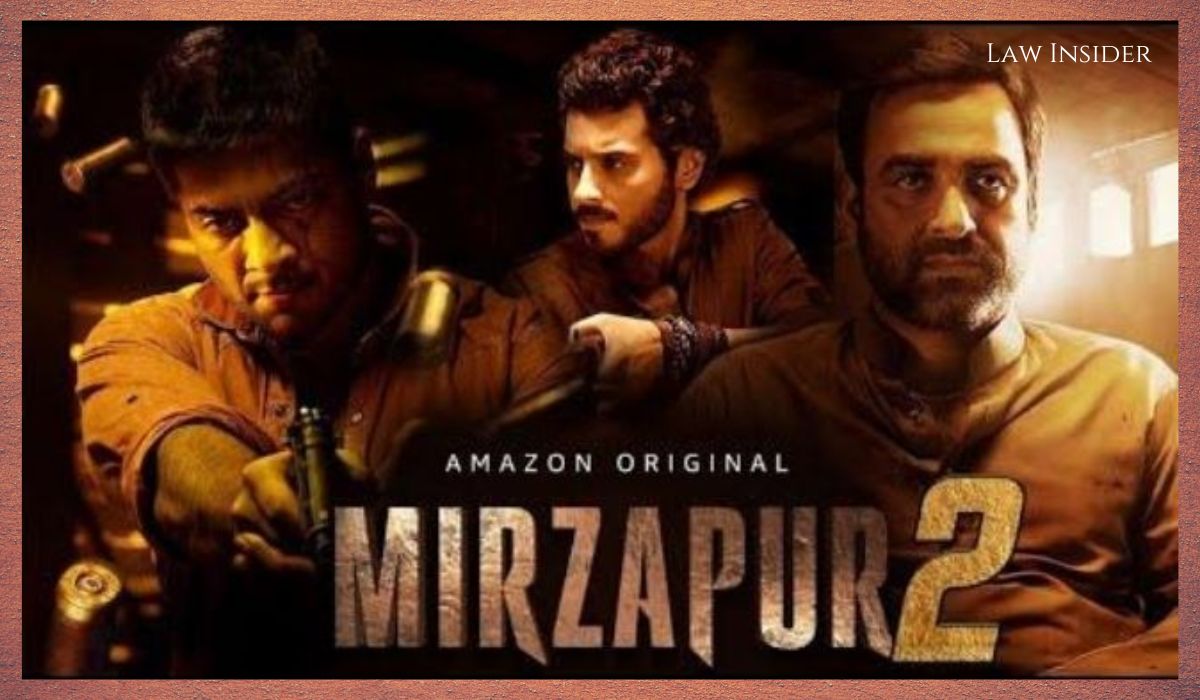Khushi Bajpai
Published on: October 14, 2022 at 20:26 IST
On Thursday, a Supreme Court bench that included Chief Justice U.U. Lalit and Justice Bela M. Trivedi dismissed a writ suit that sought to prevent or forbid the release of the online series Mirzapur 2, whose launch was proposed for October 23, 2020.
The petition also urged the government to establish initiatives that were immediately made available online.
The court noted the second request of the petition, which had requested for a pre-screening committee for shows aired on OTT platforms, noting that the show Mirzapur had already been launched in 2020.
CJI Lalit said:
“Pre-censorship is not something that is acceptable, as this court has always held. How is a pre-screening committee for web series possible? There is a specific law that applies to movies that are released in theaters. There are numerous laws, including the cinematograph act…”
“Unless you claim that this OTT business is also a part of that, your petition’s petition frame must be of a different order that allows the authorities to filter pre-view content, similar to how censorship certificates are used in theaters. There are so many other things you must have. So, whether or not this is relevant to the OTT business.”
CJI Lalit also said verbally that there were a lot of issues that needed to be investigated before anything posted to OTT platforms on the internet could be pre-screened.
He emphasized that even though the viewers or the exhibition were in India, the transmission in these circumstances was not coming from India and that it typically took place from another country.
He stated:
“The majority of the satellites are not based here. Your petition has to be a little bit more specific. Any person who feels vindicated as a result of the display is unique. He is trying to convey that anything that is projected, whether it be through the internet, virtual reality, or what is typically referred to as a satellite dish antenna system, should be (censored).”
The petitioner made an effort to call the bench’s attention to his initial request, which called for the show “Mirzapur” to be banned, and he claimed that despite the publication of Mirzapur 2, there was still more to come in the series.
The petitioner must submit the revised facts for record in order for that prayer to be taken into consideration, the bench ruled.
“Whatever it is, you have to bring out the case for this type of prayer—a pre-exhibition censorship,” the CJI said.
“What evidence is there to determine whether statutory provision is applicable? Everyone has the power to remove the statutory provision and expressly place it under Article 19. Free speech requires it. The petition is written in a compelling manner.”
Therefore, the petitioner was given the freedom to withdraw the petition with the additional freedom to file an amended petition with all pertinent characteristics and legislative provisions in support of the arguments to be made in the petition.
Background
According to the plea, Mirzapur district in Uttar Pradesh’s historical and cultural significance was the reason it had been submitted. It was mentioned that Mirzapur was noteworthy in Hindu mythology, had a mythology, and was mentioned in the Vedas, and that it was located where the sacred river Ganga meets the Vindhya Range.
However, the petition claims that the release of the web series “Mirzapur,” in which Mirzapur was portrayed as a “city of thugs and adulteresses,” negatively impacted Mirzapur’s rich cultural worth.
The petition further emphasized how the series had offended the roughly 30 lakh residents population by depicting a woman from Mirzapur having sex with both her father-in-law and her servant, hurting the sentiments of thousands of Mirzapur people as well as the city’s vibrant culture.
As a result, the petition pleaded with the Indian government to forbid the release of Mirzapur 2, the follow-up to Mirzapur.
A government agency’s accreditation should be required before a web series is made available online, according to the petition. The petition also aimed to establish guidelines for the censorship of films that were made available online.
The petition also aimed to establish guidelines for filtering films that were made available online in the same way that they were censored before being distributed in theaters and at the box office.
It requested that an investigation be carried out in accordance with the Indecent Representation of (Women) Prohibition Act of 1986, the Cinematography Act, and the Information Technology Act of 2000 against Excel Entertainment, Amazon Prime Video, and the actors who appeared in the web series Mirzapur.

